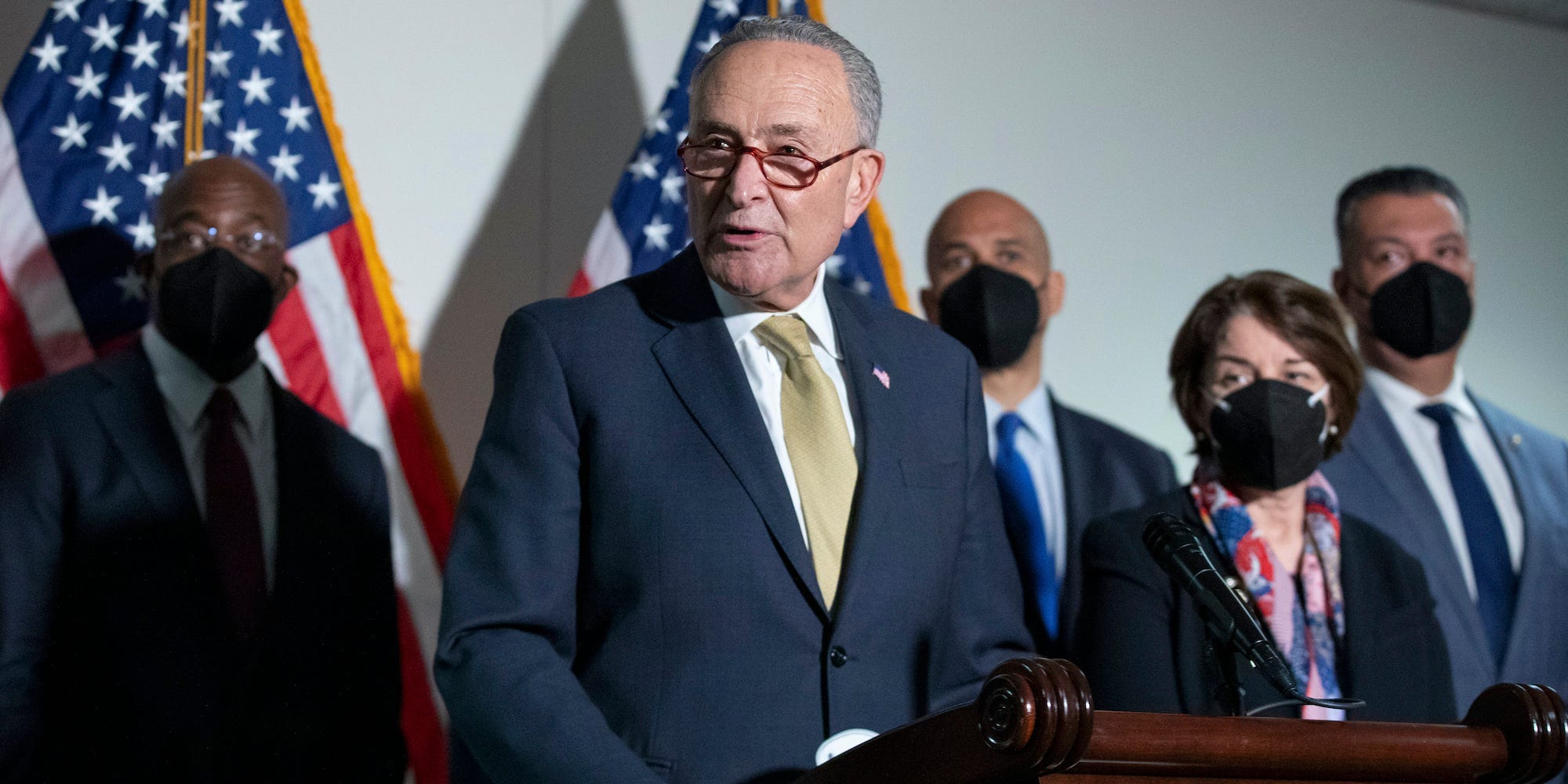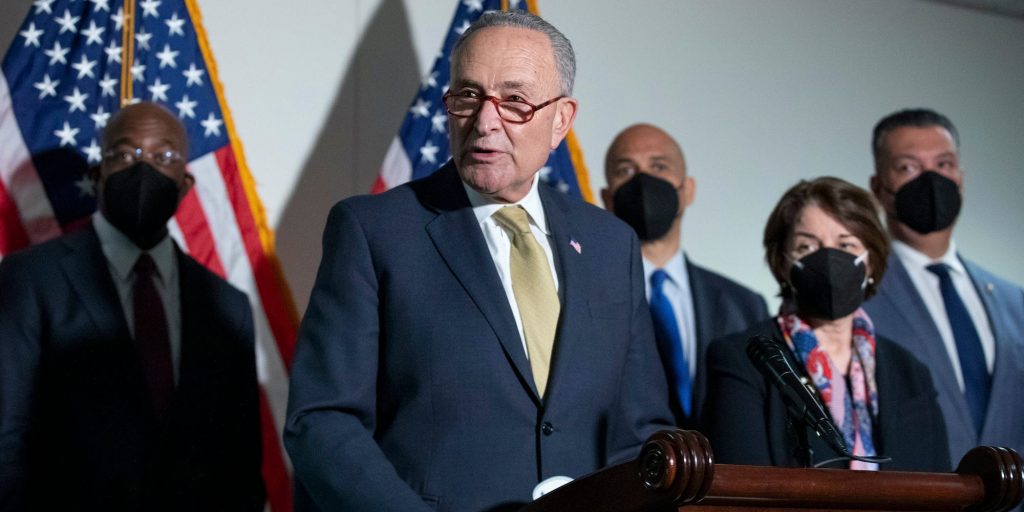
- The Senate voted down a one-time change to the filibuster to pass Democrats' voting legislation.
- All 50 Republicans and two Democrats voted against requiring a talking filibuster to block the bill.
- The lack of filibuster change marks the death of Democrats' voting rights agenda for the time being.
The Senate voted against a one-time change to the chamber's filibuster rules late Wednesday night, with two key Democrats striking the final nail in the coffin for their party's efforts to pass their signature voting rights package.
All 50 Senate Republicans and two Democrats, Sen. Joe Manchin of West Virginia and Sen. Kyrsten Sinema of Arizona, voted against a proposal brought by Majority Leader Chuck Schumer to require Republicans to maintain a talking filibuster in order to block the passage of the voting rights bill.
Previously on Wednesday, all 50 Republicans had also blocked a motion to invoke cloture, or end debate, on the bill, which required a 60-vote majority to advance.
The vote is a major setback for President Joe Biden's domestic agenda and for congressional Democrats, who failed to unify their caucus in order to pass legislation that top Democrats, including Biden, cast as imperative to save American democracy from GOP-led attacks on voting rights and fair elections at the state level. Congressional Republicans argued this bill represented a brazen partisan power grabs by Democrats and usurped the powers of states to run elections.
After Manchin and Sinema threw cold water on other proposals, like a broader filibuster carve out for all voting-rights legislation, Schumer settled on the one-time return to the talking filibuster just for the voting bill.
A talking filibuster would require a senator or group of them in opposition to speak continuously on the Senate floor to block legislation, making it more difficult to successfully block a bill while also potentially stalling all other work before the chamber.
Talking filibusters, like the kind portrayed in the 1939 film "Mr. Smith Goes To Washington," have been far less common since changes to Senate procedure in the 1970s that allowed the chamber to work on multiple bills at once.
"We feel very simply: on something as important as voting rights, if Senate Republicans are going to oppose it, they should not be allowed to sit in their office. They've got to come down on the floor and defend their opposition to voting rights, the wellspring of our democracy," Schumer said in a Tuesday evening press conference.
"Once members of the minority party have exhausted all of their speaking rights and defended their position on the Senate floor," he explained, "the debate will have run its course and the Senate will move to vote on final passage at a majority threshold, which has always been the threshold for final passage."
Normally, changes to the Senate rules require a two-thirds majority to pass. But under Senate procedure, Senate leaders can invoke the nuclear option to change the filibuster with a simple majority. The "nuclear option" moniker derives from those who view it as an extreme workaround on Senate rules.
The Senate, under former Majority Leader Harry Reid, previously invoked the nuclear option to lower the cloture threshold to a simple majority to confirm executive branch and federal court nominees in 2013. Then-Majority Leader Mitch McConnell did so again in 2017 for Supreme Court nominees.
Manchin and Sinema, however, have consistently opposed lowering the threshold to end debate on most legislation below 60 votes, with both publicly reiterating their opposition to weakening the filibuster in the last week. Manchin also opposes making changes to filibuster rules along party lines via the nuclear option.
The West Virginia Democrat is the only sitting senator who voted against lowering the 60-vote threshold with the nuclear option in 2013, when Democrats controlled the chamber, and again in 2017, when Republicans controlled the chamber.
"The Senate's greatest rule is the one that's unwritten. This is an unwritten rule and it's the greatest one we have: it's the rule of self-restraint, which have very little of anymore," Manchin said Wednesday on the Senate floor. "The rule will be broken along with the cloture rule if the nuclear option is executed, and to that, I cannot be a party."
And before Biden paid a special visit to Senate Democrats' closed-door caucus meeting on January 13 to lobby for voting rights and filibuster changes, Sinema upstaged him by taking to the Senate floor to again restate her support for maintaining the 60-vote cloture threshold.
"These bills help treat the symptoms of the disease, but they do not fully address the disease itself," she said of the voting rights measures. "And while I continue to support these bills, I will not support separate actions that worsen the underlying disease of division infecting our country."
Sinema's colleague from Arizona, Democratic Sen. Mark Kelly, who is facing reelection in 2022, voted in favor of Schumer's one-time filibuster change.
"As an astronaut and combat veteran, I can tell you that if NASA or the Navy functioned like the United States Senate, we would never get the rocket off the launchpad and in combat we'd never complete the mission," he said.

